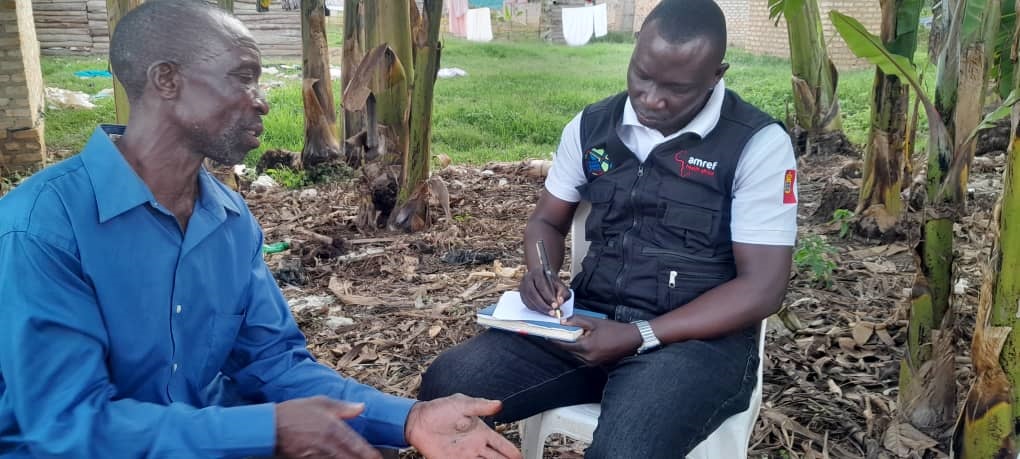Prime
Anthrax outbreak: Kyotera leaders declare quarantine

Mr Joseph Mazzi, 63, a survivor of a strange disease (left), speaks to Mr Emax Kintu, the Kyotera District health educator, at Kyamayembe Village on November 18. PHOTO/AMBROSE MUSASIZI
What you need to know:
- Authorities are worried that those infected are resorting to witchcraft instead of seeking treatment.
Authorities in Kyotera District have banned cattle movement and sale of their products in Kabira Sub-county following an anthrax outbreak.
According to Dr Edward Muwanga, the district health officer, the quarantine is aimed at reducing the spread of the disease, which has so far killed 17 people.
A total of 28 people are currently bedridden in several villages of Kabira.
“We have restricted eating of meat in Kabira Sub-county and all attached animal products like butter and milk. We don’t want to see any butcher operating because we are trying to save lives,” he told Daily Monitor on Tuesday.
Dr Muwanga added that the quarantine will be maintained until veterinary and medical doctors confirm that the disease has been contained.
Anthrax is caused by a bacteria known as Bacillus anthracis, according to Africa Centres for Disease Control (Africa CDC).
Humans generally acquire the disease directly or indirectly from infected animals or occupational exposure to affected or contaminated animal products.
On November 26, the Ministry of Health confirmed the outbreak of the disease in the area which residents were referring to as a ‘strange’ for a month .
The affected villages include; Kyamayembe, Bugera, Nakatoogo, Mabaale,Kabutooke, and Kyanika.
Dr Muwanga, however, said some residents are still visiting shrines even after knowing that they have contracted anthrax.
“ We are worried that they may succumb to other illnesses such as malaria and typhoid because whatever happens to them, they think it is witchcraft and they run to the shrines, which frustrates our efforts ,” he said.
While presiding over this year’s World Aids day commemoration in neigbouring Rakai District last weekend, President Museveni warned locals against eating meat without establishing its source, saying it could easily expose them to anthrax.
According to Mr Emax Kintu, the Kyotera health educator , proper disposal by burying carcasses, and avoiding skinning dead animals helps contain the spread of the disease .
“ If residents take the message disseminated to them seriously, it will be easy to contain the disease since it is not contagious like Ebola or coronavirus ,” he said.
Previous outbreaks
In July last year, Kyotera was hit by what was at first believed to be a strange disease which killed 13 residents in Kijonjo Parish, Kasasa Sub-county. The Ministry of Health later identified the illnesses as cellulitis locally known as ettalo. The disease presents signs and symptoms such as vomiting, diarrhoea, headache and bleeding.
In August, authorities banned the production and the sale of waragi, a local brew, after it killed eight adults and two children in Kabira Sub-county .The victims reportedly consumed the locally distilled alcohol suspected to be laced with methanol.




